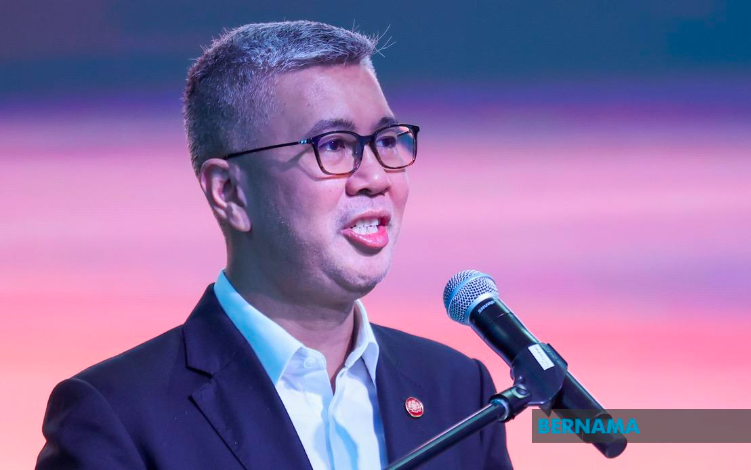ASEAN COUNTRIES MUST JOINTLY WORK ON CLIMATE FINANCE FROM DEVELOPED COUNTRIES - TENGKU ZAFRUL

Sustainability is vital in these times of global de-risking, particularly to address climate change issues, but it must not be used to restrict free trade.
To that point, Investment, Trade and Industry Minister Tengku Datuk Seri Zafrul Abdul Aziz stressed that green pre-conditions must not be used as a non-tariff barrier or modern-day eco-imperialism tool.
“This underpins our negotiations, whether on our own or jointly with Indonesia, with the European Union,” he said in his speech during the 11th Singapore Dialogue On Sustainable World Resources (SWR) in Singapore.
Tengku Zafrul said Malaysia has continued and will continue to assert its position and confidence in, for example, its standards of sustainable palm oil production while reminding other parties about their responsibilities to the principles of a just (climate) transition.
He also shared a clear message that Malaysia wants to remain an open trading country for all and will not be forced to choose between any great power competing in its backyard, although neutrality does not mean silence.
“On the contrary, there ought to be some muscularity in that strategic neutrality. The Malaysia MADANI and MADANI Economy frameworks, after all, stress the importance of values in what we do.
“I believe this is important because we need our voice and point of view to be taken into account,” he stressed.
He also believed that ASEAN countries must work together to get more climate-derisking capacity funding from developed countries for this region's future survival.
“Related to this, I must add that Malaysia takes its chairmanship of ASEAN in 2025 seriously.
“We are determined to ensure that we set and achieve the right Priority Economic Deliverables (PEDs) to usher in a new growth era for ASEAN, to ensure a just environmental, social, and governance (ESG) transition and to develop a stronger voice to protect ASEAN's trade, industry and investment interests on the global stage,” he said.
He said while Malaysia has come a long way from being simply a commodity exporter in the traditional sense to a truly diversified trading nation, there is still much work to be done to ensure economic security and inclusivity for Malaysians, and by extension, the people of ASEAN.
The minister said the journey will not be easy with some pieces of the jigsaw still to be filled via tough policy decisions.
“For example, we need to ensure our talent pool is sufficiently broad and deep to fulfil these aspirations.
“The skillsets required to respond to these megatrends are different from what we are used to – whether in government or business,” he added.
Therefore, he noted that the cooperation and support of Singapore, Malaysia's closest neighbour and one of our top economic partners would be crucial.
During the Q&A session, he expressed his hope to continue to expand bilateral and multilateral economic ties between countries in this region in new 'green' sectors and to ensure better energy security for ASEAN.
On the government side, he said MITI and its related agencies will do all it can to help strengthen economic ties with Singapore and other ASEAN countries, particularly on increasing intra-ASEAN trade and investments.
